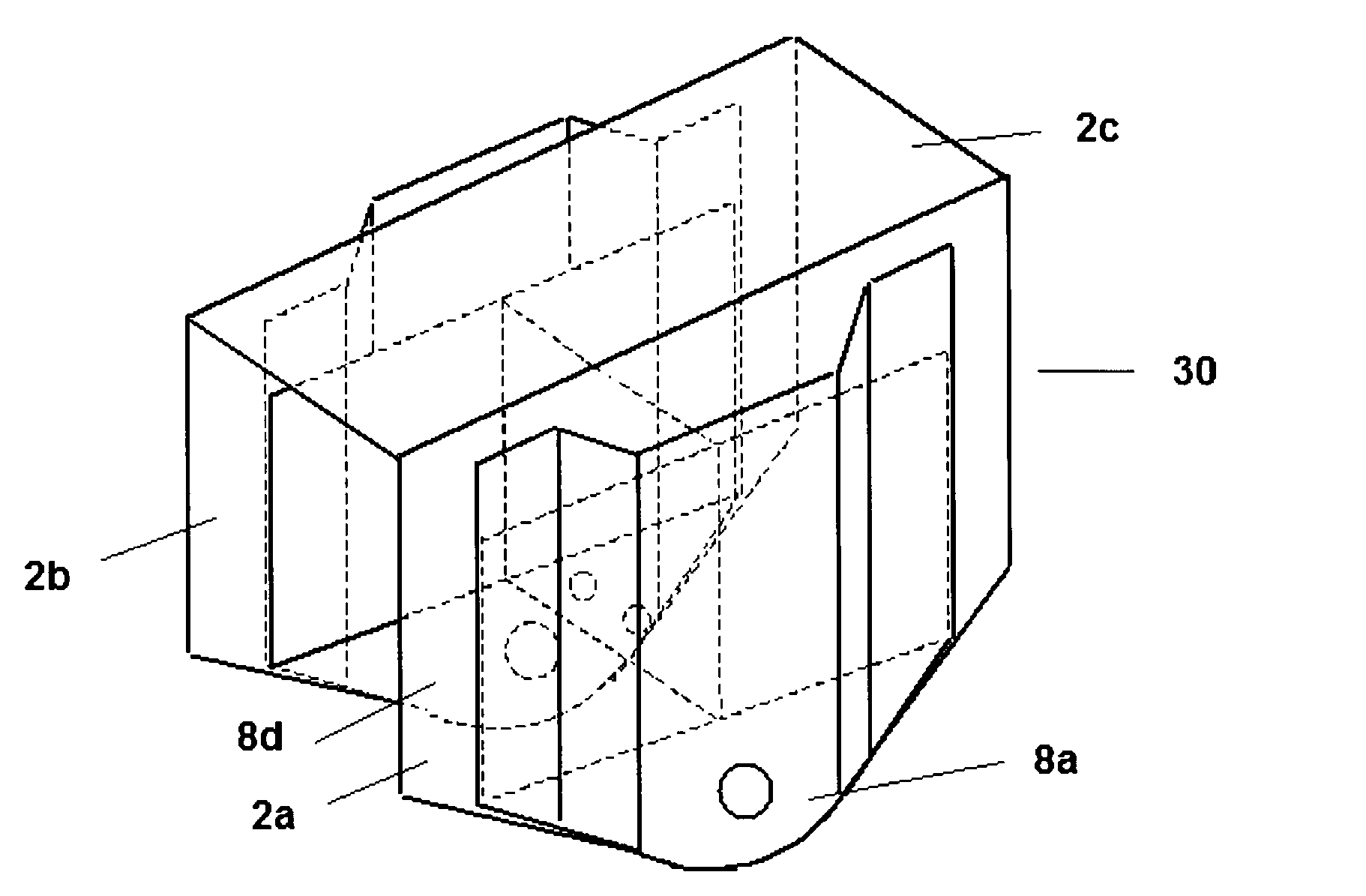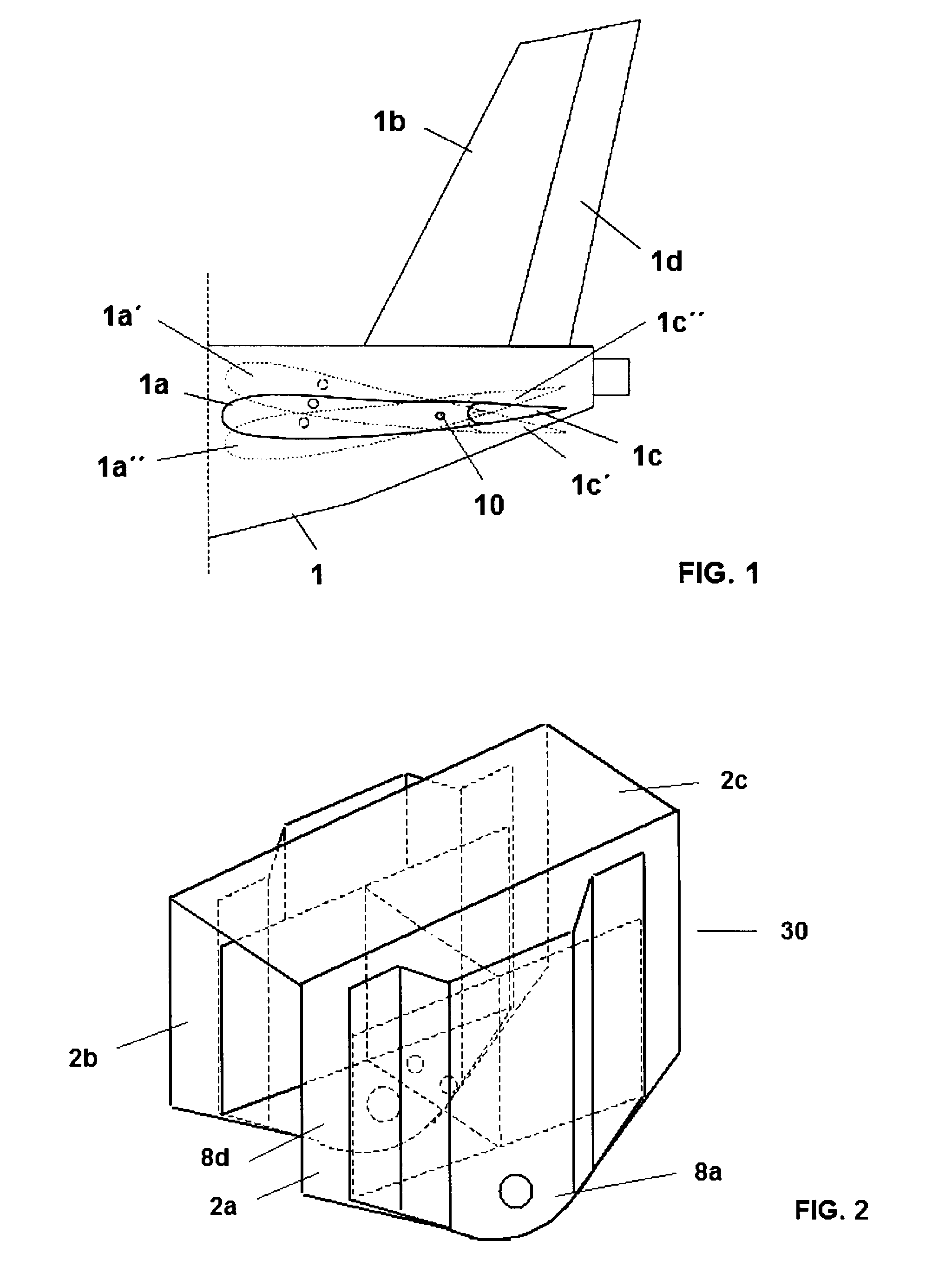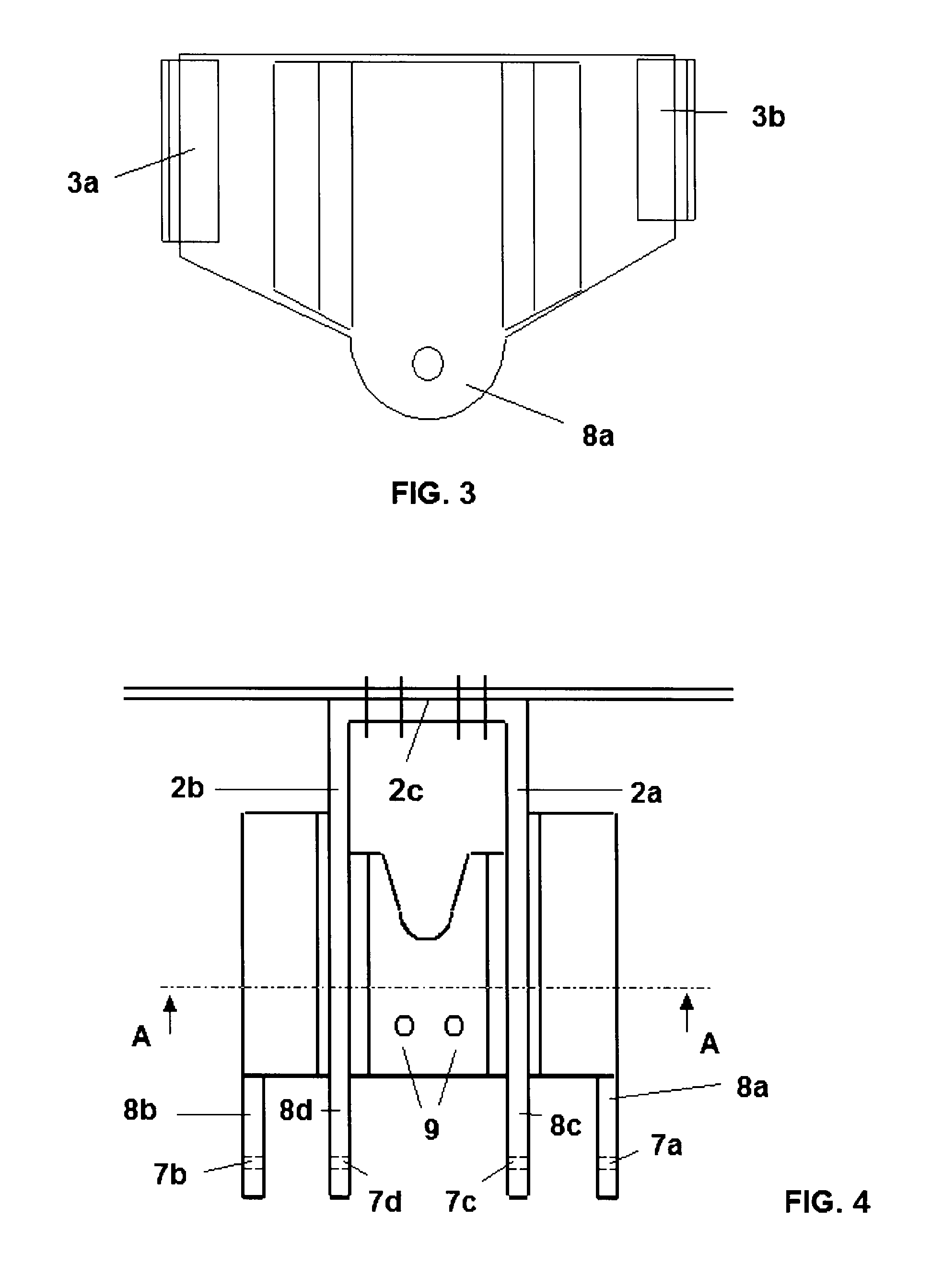Fitting for trimming a horizontal stabilizer of an aircraft
a technology for aircraft and stabilizers, applied in the direction of aircraft floors, fuselages, transportation and packaging, etc., can solve the problems of high manufacturing cost, difficult and costly manufacturing of such stabilizers, and high manufacturing costs
- Summary
- Abstract
- Description
- Claims
- Application Information
AI Technical Summary
Benefits of technology
Problems solved by technology
Method used
Image
Examples
Embodiment Construction
[0028]FIG. 1 shows the tail fuselage 1 of an aircraft, on which a horizontal stabilizer 1a with its elevator 1c as well as a vertical stabilizer 1b with its rudder 1d are arranged. The horizontal stabilizer 1a can be trimmed in a conventional manner by means of a motor / spindle mechanism which is connected to a control point 10, actuation of which causes the horizontal stabilizer la to pivot so that, also in a conventional manner, the horizontal stabilizer 1a and the elevator 1c are able to adopt the positions 1a′, 1c′ and 1a″, 1c″, respectively, as shown in the said FIG. 1.
[0029]FIGS. 2 to 6 show a preferred embodiment of the fitting 30 according to the invention for trimming a horizontal stabilizer 1a, said fitting 30 comprising the side walls 2a and 2b of a torsion box. Said fitting 30 comprises first joining means 3a in the form of angle pieces so that the walls 2a and 2b can be riveted to a first frame (not shown in the figures) of the tail fuselage 1 of the aircraft. The fittin...
PUM
 Login to View More
Login to View More Abstract
Description
Claims
Application Information
 Login to View More
Login to View More - R&D
- Intellectual Property
- Life Sciences
- Materials
- Tech Scout
- Unparalleled Data Quality
- Higher Quality Content
- 60% Fewer Hallucinations
Browse by: Latest US Patents, China's latest patents, Technical Efficacy Thesaurus, Application Domain, Technology Topic, Popular Technical Reports.
© 2025 PatSnap. All rights reserved.Legal|Privacy policy|Modern Slavery Act Transparency Statement|Sitemap|About US| Contact US: help@patsnap.com



